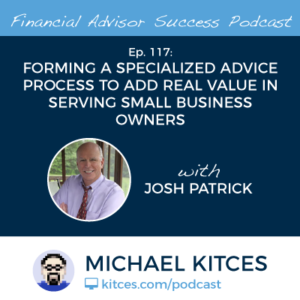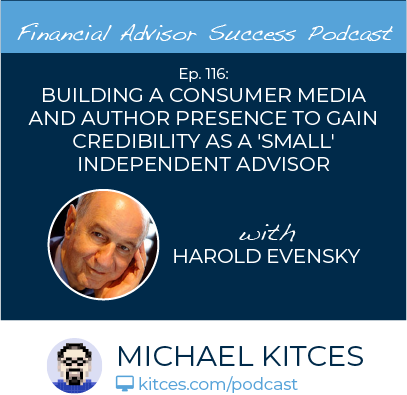Despite the recent public scrutiny of various social media platforms, the number of active users on mediums like Twitter, Facebook, LinkedIn, and Instagram continues to grow exponentially, making social media an increasingly attractive channel for financial advisors to not only reach prospective clients and centers of influence, but to nurture relationships with existing clients as well. Yet, it’s also incredibly easy to spend a lot of time (and potentially money) on social media, only to find that your efforts have been for naught, leading many to wonder if social media really matters for financial advisors at all.
In our fourth episode of “Kitces & Carl”, Michael Kitces and financial advisor communication guru Carl Richards sit down to discuss the question of the extent to which financial advisors should or “have to” participate in social media (or not), why it might be a worthwhile endeavor if done correctly, some ideas that advisors can use immediately to get more out of their social media efforts, and why, ultimately, using social media successfully is ultimately about a series of “micro interactions” to better connect with other individuals.
The first question to consider is whether or not it’s absolutely essential for financial advisors to build a social media presence to begin with. As while there are numerous stories of advisors landing multi-million-dollar clients solely through social media, the reality is that the only non-negotiable virtual presence that every advisor must have is a modern, professional-looking website (not a social media account). Because, in a world where consumers are far savvier and more informed than they’ve ever been, the one thing you can count on is that a prospective client will have done their due diligence on you before they decide to book that first meeting, and there’s no better way to throw ice water on a warm prospect than an outdated website… or one that prominently features a sailboat, lighthouse, or long, winding road tapering off towards the horizon, that doesn’t really connect with prospects today.
Beyond that, though, for financial advisors, the task of getting in front of prospective clients has always been primarily a social endeavor, and at its core, social media is an avenue for humans to communicate and interact with each other. Which means that social media can not only augment and amplify how you present yourself to the public, but it can be a particularly effective means of connecting with others… especially if you have yet to crack the code of networking events or other organized social activities. In other words, whether face-to-face or through “the interwebs”, authentic communication is the best pathway for developing relationships, and social media is simply one of many channels to do so.
And when it comes to social media, a side benefit is that even those you’re not interacting with can see how you communicate with others, and can form their own opinions about you and decide whether or not they want to learn more about you and your services. Because one of the most powerful aspects of developing a social media presence is that it allows you to reach a much larger audience than would be possible by concentrating solely on in-person events. Moreover, social media can also open avenues of access to centers of influence and other people in your target market that you might not have access to otherwise.
Ultimately, though, the key point is to recognize that developing a quality social media presence takes time. There are no overnight successes, and you won’t miraculously have a line of people who want to hire you banging on your door because you sent out a tweet or few, but (as is the case when helping clients build their own solid financial foundations) small actions taken repeatedly can still lead to massive changes. Or stated more simply: repeated authentic interactions compound over time, whether in-person or via social media. In other words, regardless of the way in which you make it happen, in the end, communicating authentically with others is the most reliable and effective way for any financial advisor to build a successful practice. Social media just happens to be a particularly efficient channel to do so. At least for some advisors.

 Welcome back to the 117th episode of Financial Advisor Success Podcast!
Welcome back to the 117th episode of Financial Advisor Success Podcast! Welcome back to the 116th episode of Financial Advisor Success Podcast!
Welcome back to the 116th episode of Financial Advisor Success Podcast!
